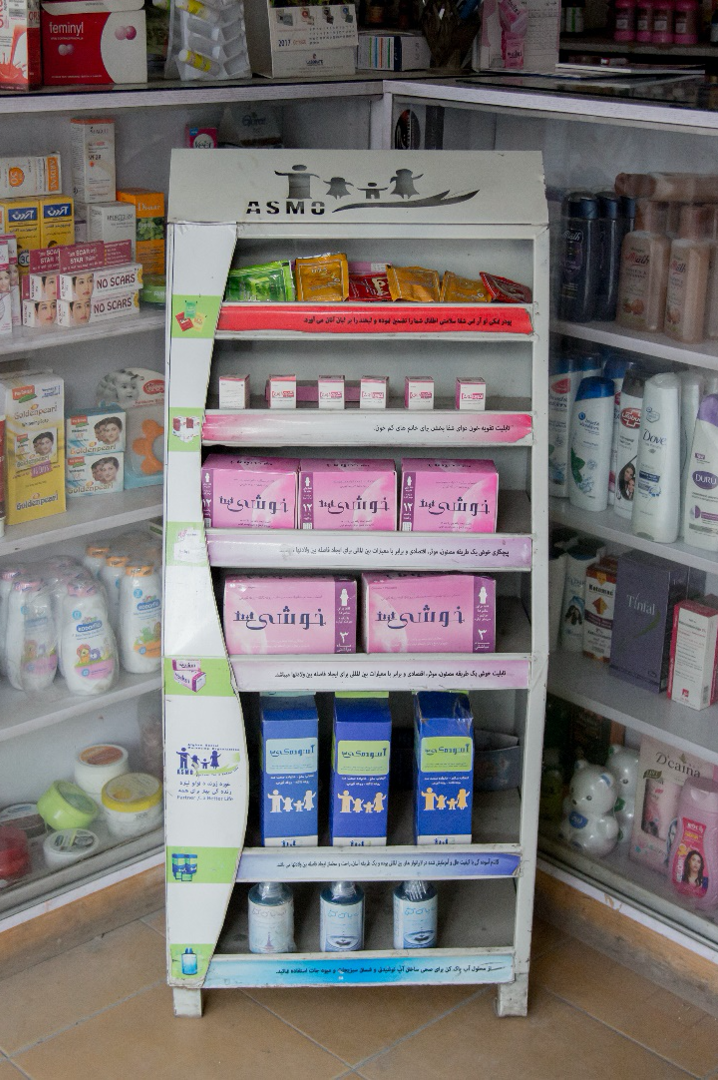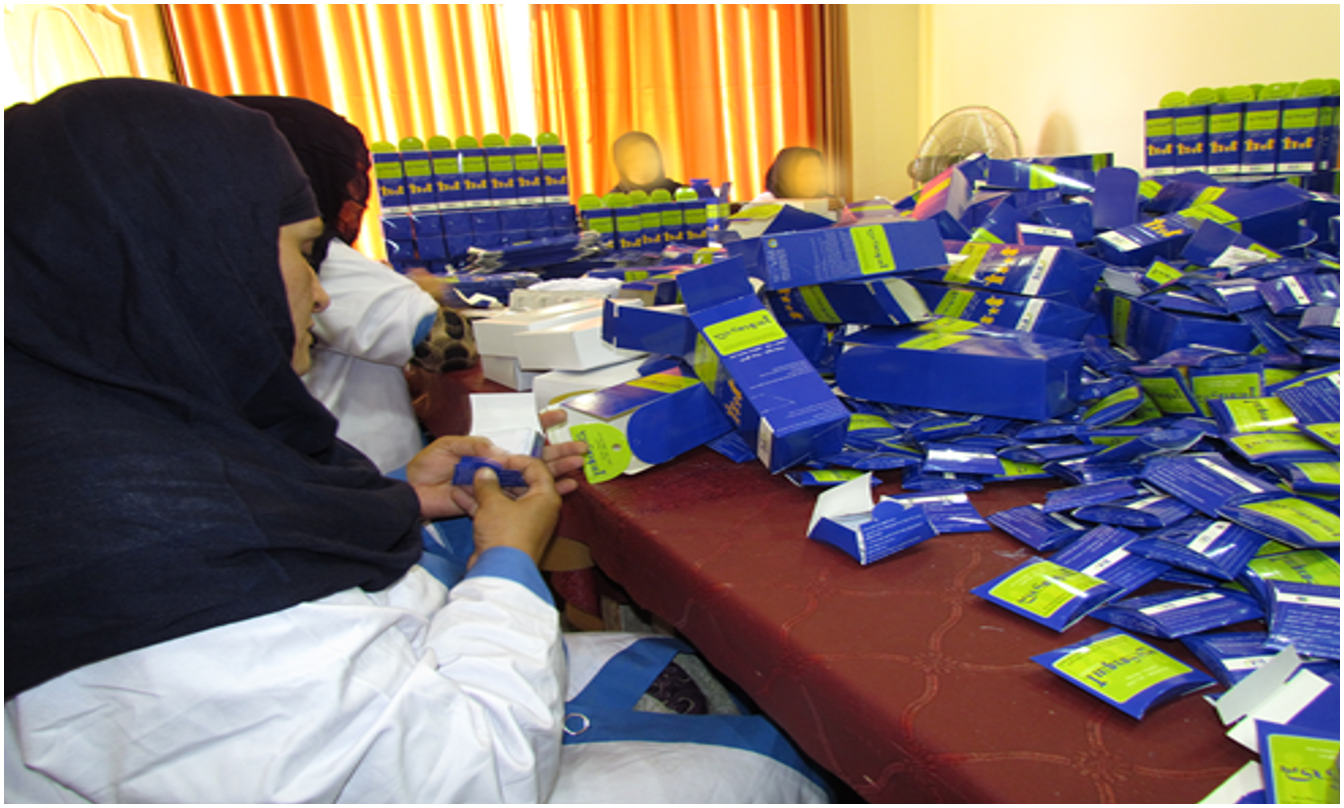Improved procurement efficiencies increase ASMO’s impact and sustainability
A change in management of the supply chain strengthened the sustainability of the Afghanistan Social Marketing Organization, a major source of contraception and other health products.

ASMO is a significant contributor to health in the country. According to a SHOPS Plus analysis, approximately one in five users of modern contraceptives, oral rehydration salts, water treatment solutions, and iron supplement products source them from ASMO. In the past, ASMO has relied on donated commodities supplied through the global procurement system to achieve these outcomes. However, it has consistently experienced a cycle of stockouts and product expirations over the last decade that prevented it from achieving its full potential. There were wide variations in the time it takes between ASMO first requesting a donated commodity and the product reaching its doors. These delays are caused by geopolitical conflicts, both in Afghanistan and throughout the region, as well as the country’s nascent regulatory system. Varying lead times made it difficult to accurately forecast commodity needs, resulting in consistent stockouts. Additionally, donated commodities imported through the global procurement system were typically not branded and had to be repackaged with ASMO branding upon arrival. Long lead times getting the product into Afghanistan, combined with additional time to rebrand the product once it comes into the country, reduced the time available for ASMO to sell products before they expired.
SHOPS Plus proposed that shifting to regional procurement could improve these efficiencies, address stockouts, and reduce the costs of getting ASMO’s products to market. In response, the project deployed a strategy to help ASMO procure commodities directly from regional suppliers. First, the project strengthened ASMO’s international procurement capacity and internal systems for commodity forecasting, reorder points, and reorder quantity. The project then worked with ASMO to identify qualified manufacturers that meet Afghanistan’s quality and regulatory requirements, review tender terms, and support negotiations between ASMO and manufacturers. ASMO now uses program income to purchase custom-branded, pre-packaged commodities directly from regional manufacturers.

The regional procurement approach has already yielded significant results including an 18 percent gain in commodity shelf life on delivery, 71 percent savings in time required to procure commodities, and 67 percent reduction in cost to procure commodities. Several factors contributed to these achievements:
- ASMO could shorten procurement lead times by controlling the process itself and reducing the number of intermediaries
- Regional suppliers would better understand geo-political challenges associated with getting products to ASMO and implement appropriate solutions
- ASMO’s direct engagement in the procurement process would allow it to leverage its relationships and reputation to expedite local processes
- ASMO could negotiate for custom-branded, pre-packaged commodities with regional suppliers, thereby shortening the time required to get products to market
Collectively, these factors have resulted in significant cost savings and reduced stock outs that directly improve ASMO’s sustainability and health impact.